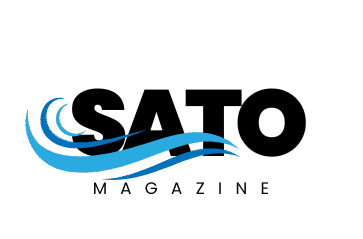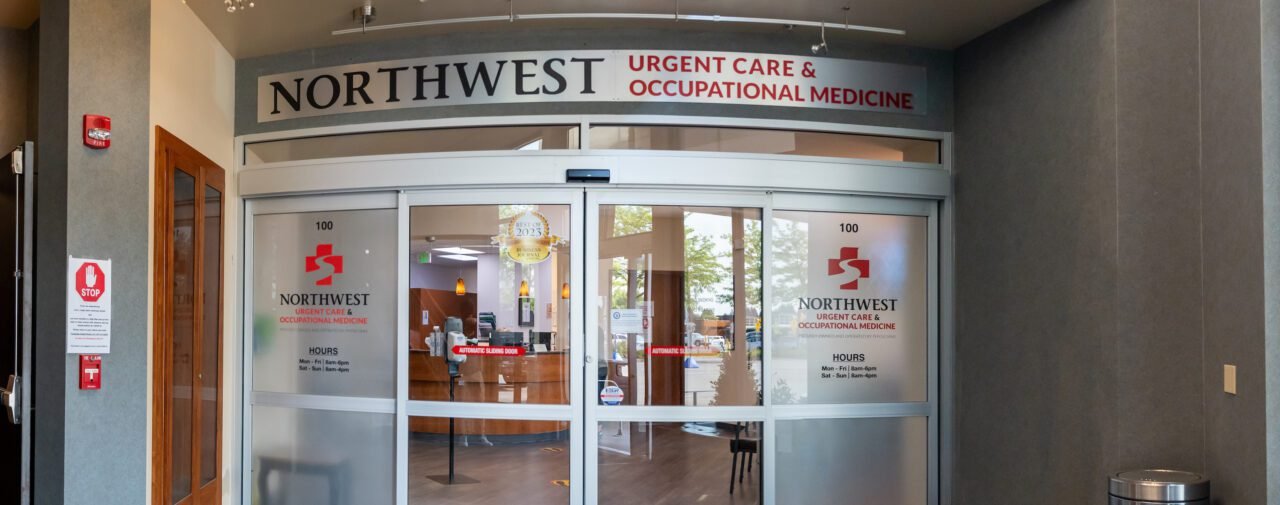“NW Specialty Hospital Post Falls” refers to Northwest Specialty Hospital, located in Post Falls, Idaho. This hospital is part of a physician-owned medical facility network offering a broad range of surgical, specialty, and outpatient services. In this article, we will explore its history, services, operational features, care philosophy, community impact, challenges, and future directions. At the end, FAQs provide concise answers to common questions.
Table of Contents
History & Background
Origin and Governance
Northwest Specialty Hospital (often abbreviated NWSH) is a physician-owned and operated hospital. It is one of the few surgical specialty hospitals in the region with direct physician investment, which tends to align management incentives with clinical outcomes and patient care.
Location & Setting
The hospital’s address is 1593 East Polston Avenue, Post Falls, Idaho. Surgery Partners+2Post Falls Chamber of Commerce+2 It serves the greater Inland Northwest area—including communities near Coeur d’Alene, Idaho, and portions of eastern Washington.
Milestones & Recognition
- In August 2023, Northwest Specialty Hospital earned a five-star rating from the Centers for Medicare & Medicaid Services (CMS), placing it among the top hospitals in terms of quality measures nationally.
- The hospital was involved in a physician-led real estate transaction (a hybrid sale-leaseback) that included several associated medical office buildings in Post Falls and Coeur d’Alene, reflecting strategic growth planning.
These accomplishments reflect both clinical performance and organizational maturity.
Mission, Philosophy & Culture
Patient-Centered Focus
One of the distinguishing traits of NW Specialty Hospital Post Falls is its emphasis on patient-centered care. Because physicians have ownership stakes, there is often closer alignment between clinical goals and administrative decisions. The hospital promotes a culture where patients are more than “cases”—they are individuals with dignity, rights, and voices.
Quality & Safety as Core Pillars
To maintain high standards, NWSH tracks metrics such as mortality, infection rates, readmissions, timeliness and effectiveness of care, and patient experience. The five-star CMS rating signals that it meets rigorous benchmarks across these dimensions.
Integration & Continuity
Though called a “specialty hospital,” NWSH offers many services under one roof (or network). This helps reduce fragmentation, so patients can move between specialties (e.g. general surgery, bariatrics, imaging, gastroenterology) without losing continuity.
Services & Clinical Specialties
NW Specialty Hospital in Post Falls offers a broad array of services. Here are some of the key areas:
Surgical & Procedural Services
- General Surgery & Minimally Invasive Procedures: Surgeons such as Dr. John L. Pennings and Dr. Derek Dirks are involved in minimally invasive and laparoscopic surgery, including procedures such as endoscopy and colonoscopy.
- Bariatric Surgery: NWSH provides weight loss surgical procedures like vertical sleeve gastrectomy and Roux-en-Y gastric bypass, under an accredited bariatrics program.
- Endoscopy / Colonoscopy: The hospital contracts for these services within its digestive care offerings.
Diagnostic & Imaging
To support surgical and specialty care, NWSH maintains imaging and diagnostic capabilities, allowing for efficient preoperative workups, intraoperative imaging guidance, and postoperative monitoring.
Outpatient & Ancillary Services
The broader NW Specialty network includes clinics and services such as primary care, urgent care, women’s care, orthopedic services, pediatric care, sleep medicine, and more. These allow patients to receive follow-up or adjunct care without needing to travel far.
Hospital Services & Bed Capacity
As a hospital facility, NWSH in Post Falls supports inpatient stays, post-operative recovery, and general medical support. The exact bed count is relatively modest (32 beds across the facility in its surgical hospital component) along with multiple operating rooms, procedure rooms, and recovery units.
Insurance & Contracting
NW Specialty Hospital is contracted with most major insurance providers, facilitating access for insured patients without excessive administrative barriers.
Operational Features & Infrastructure
Facility Design & Workflow
The hospital is designed to focus on efficiency, clinical quality, and infection prevention. Segregated patient flows, sterile zones, and dedicated operating rooms enhance safety and throughput.
Staffing & Clinical Teams
Because physicians are owners, staffing models tend to emphasize close collaboration among surgeons, anesthesiologists, nursing staff, and support staff. Interdisciplinary coordination is critical for complex cases.
Technology & Tools
NWSH invests in modern surgical tools, imaging technologies, electronic medical records, and monitoring systems to maintain accuracy, safety, and continuity of care.
Patient Experience & Amenities
The hospital has earned recognition for patient experience scores (e.g. CMS five-star). While not a hotel, amenities like comfort, communication, clean facilities, and nutritional care play a role in rounding out the patient experience.
Impact on the Regional Healthcare Ecosystem
Filling a Specialty Gap
In the Post Falls / Coeur d’Alene / Inland Northwest area, access to high-quality surgical and specialty care is more limited compared to metropolitan hubs. NWSH offers locally available advanced care, reducing patient travel burdens and improving care access.
Economic & Employment Role
The hospital and its associated medical offices generate local employment for medical professionals, support staff, ancillary services, and allied health roles. This contributes to regional economic stability.
Referral & Collaboration
Other hospitals, clinics, and physicians refer cases to NWSH when advanced surgical or specialty interventions are needed. Likewise, NW Specialty’s outpatient clinics can link patients back to primary care or rehabilitation services in the region.
Community Trust & Reputation
Earning a top CMS rating helps build public trust. In smaller communities, reputation matters: patients and their families often rely on word-of-mouth, referrals, and visible quality indicators.
Challenges & Considerations
Balancing Volume & Quality
Specialty hospitals generally handle fewer, more complex cases. Maintaining financial viability while prioritizing quality and outcomes is a delicate balance, especially in a rural or semi-rural region with lower case volumes.
Keeping Up with Technology
Medical technology, surgical technique, and diagnostic tools evolve rapidly. NWSH must invest in upgrades and training to remain competitive.
Workforce Recruitment & Retention
Attracting skilled specialists, nurses, and support staff in a relatively remote area is challenging. The hospital must provide professional support, career pathways, and competitive compensation.
Regulatory & Payment Pressures
Hospitals are subject to regulatory standards, reporting requirements (e.g. to CMS), and payer pressures (insurance reimbursement, pricing transparency). Any adverse metrics may affect reimbursement and accreditation.
Integration with Broader Health Systems
Coordination across different health systems, clinics, and community providers is essential. Ensuring seamless transitions (e.g. from primary care to surgery to rehabilitation) requires strong partnerships.
Future Directions & Strategic Initiatives
Expansion of Service Lines
The hospital and its associated land holdings include plans for growth into additional specialties such as oncology, orthopedics, outpatient surgery centers, and expanded diagnostic capacity.
Strengthening Ambulatory Footprint
Enhancing outpatient clinics and satellites in surrounding communities (e.g. Rathdrum, Athol, Coeur d’Alene) helps bring care closer to patients, reduce travel, and improve access.
Telehealth & Remote Monitoring
As remote care becomes more accepted, NWSH can expand teleconsultation, remote follow-up, and monitoring tools to reduce in-person burden and streamline continuity of care.
Quality Innovation & Research
Engaging in clinical research, process improvement initiatives, and quality innovation may help the hospital maintain its five-star status, publish outcomes, and attract patients and staff.
Community Engagement & Health Equity
To serve diverse populations, NWSH can expand community outreach, preventive programs, health education, and partnerships with local public health agencies.
Summary
NW Specialty Hospital Post Falls (Northwest Specialty Hospital in Post Falls, Idaho) is a physician-owned, specialty surgical hospital that plays a critical role in the regional healthcare landscape. Through its commitment to quality, patient experience, integrated services, and strategic growth, it offers advanced care locally that might otherwise be unavailable or less accessible. While it faces challenges typical of specialty hospitals in smaller regions, its recognition, infrastructure, and alignment of incentives suggest it is well positioned to continue contributing to improved health outcomes in its community.
Frequently Asked Questions (FAQs)
Q1: What is the bed capacity of NW Specialty Hospital Post Falls?
A: The hospital has about 32 beds in its surgical hospital component, alongside multiple operating rooms and recovery units.
Q2: Where is the hospital located?
A: It is located at 1593 East Polston Avenue, Post Falls, Idaho, 83854.
Q3: What types of surgeries are offered?
A: NWSH offers general surgery, minimally invasive laparoscopic surgery, bariatric (weight loss) surgery, endoscopy, colonoscopy, and other procedural services.
Q4: Is the hospital covered by insurance?
A: Yes — NW Specialty Hospital participates in contracts with most major insurance providers, making access easier for insured patients.
Q5: What does the hospital’s CMS five-star rating mean?
A: The five-star rating from CMS is a composite measure of hospital quality across categories such as mortality, safety, readmissions, patient experience, and timeliness/effectiveness. This rating places NWSH among hospitals with high performance in these domains.
Q6: How does physician ownership influence care?
A: Physician ownership can foster closer alignment between clinical goals and administrative decisions, promote accountability in care outcomes, and reduce conflicts between profit and patient welfare. It may also support more agile decision-making in implementing clinical innovations.
Q7: What future services or expansions are planned?
A: Growth plans include expanding into oncology, orthopedics, new outpatient surgery centers, and expanded diagnostic services by leveraging developable land and strategic real estate holdings.
Q8: How does NWSH integrate with outpatient and community health providers?
A: The hospital is part of a broader network of clinics and ambulatory services, which helps coordinate patient transitions from primary care to specialty care and post-discharge follow-up.

